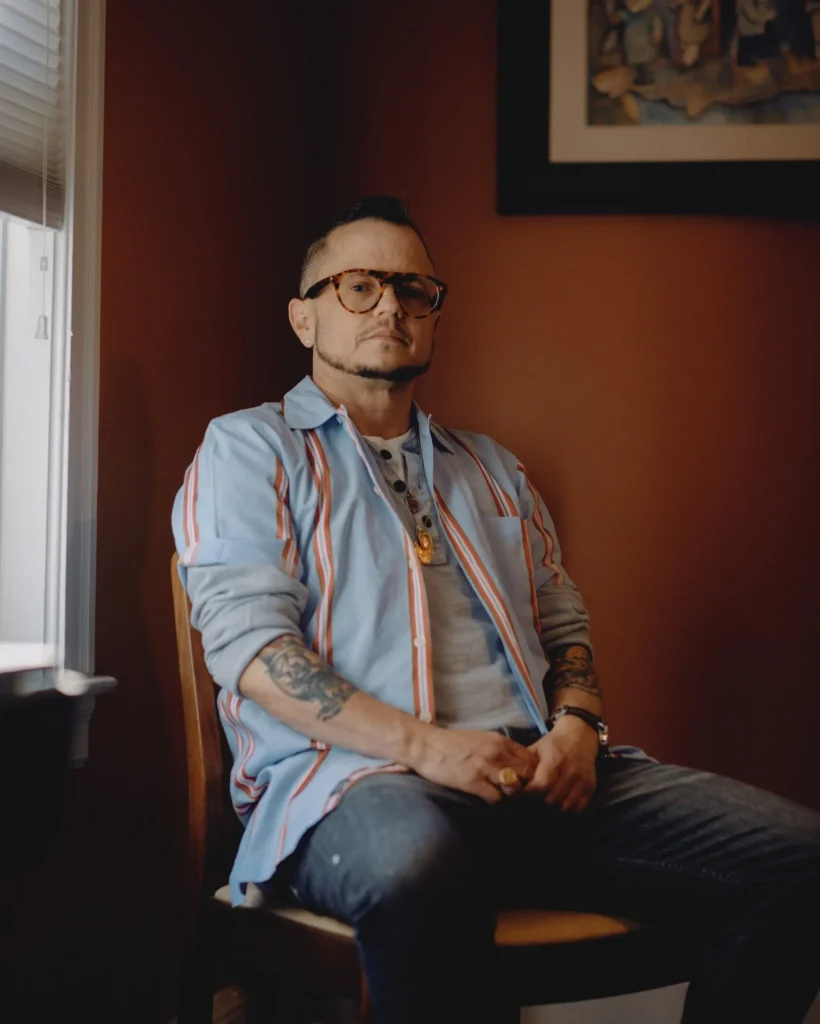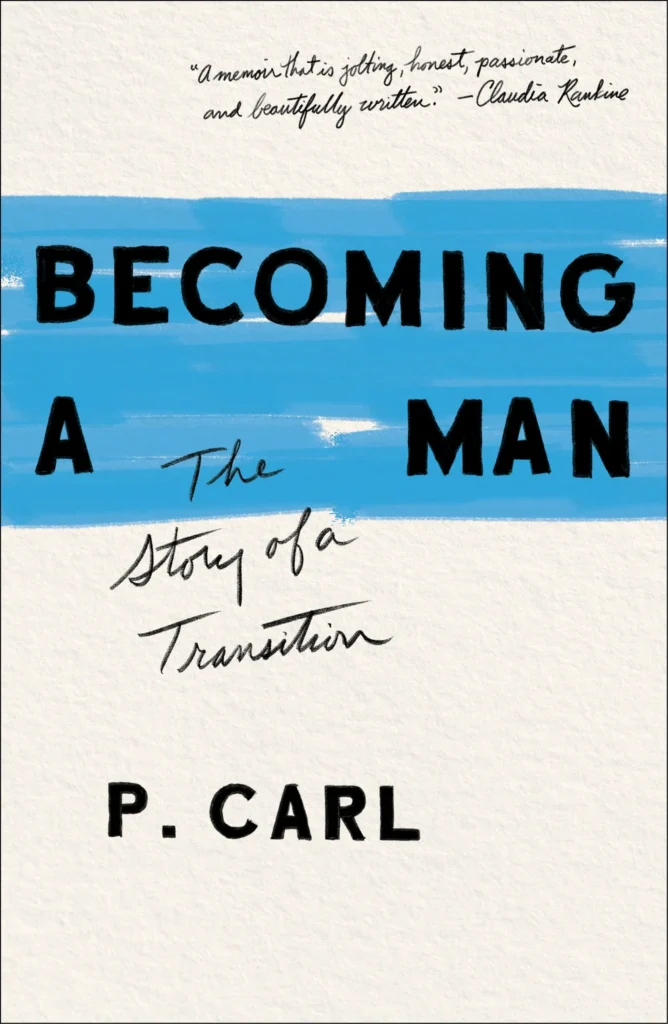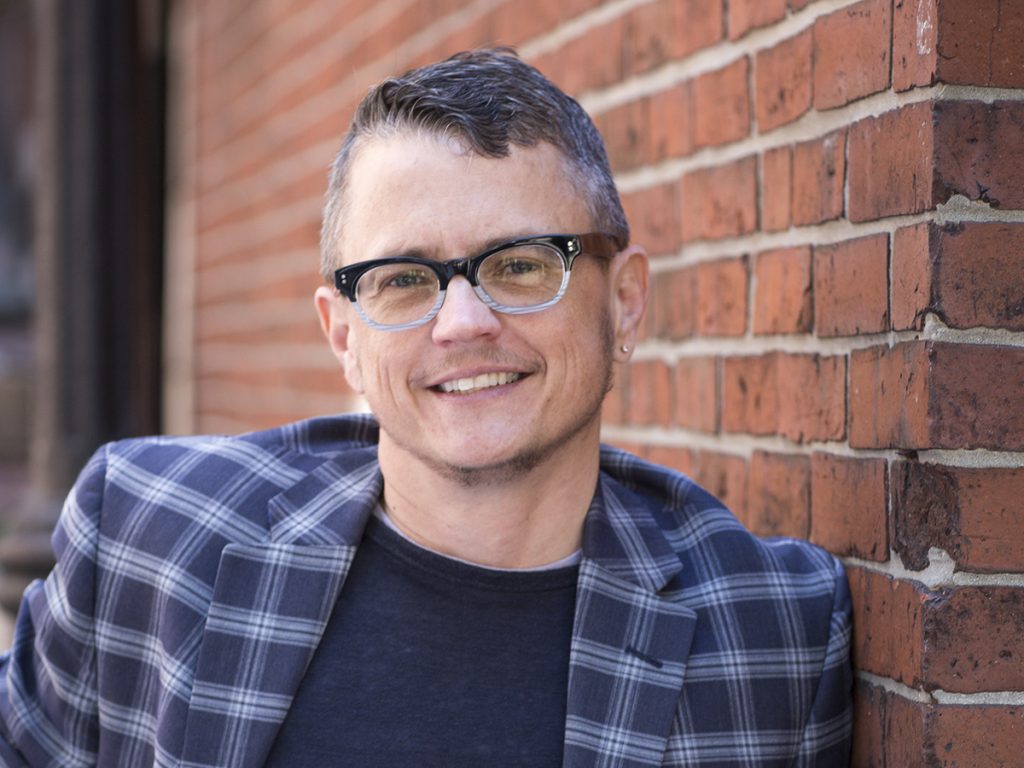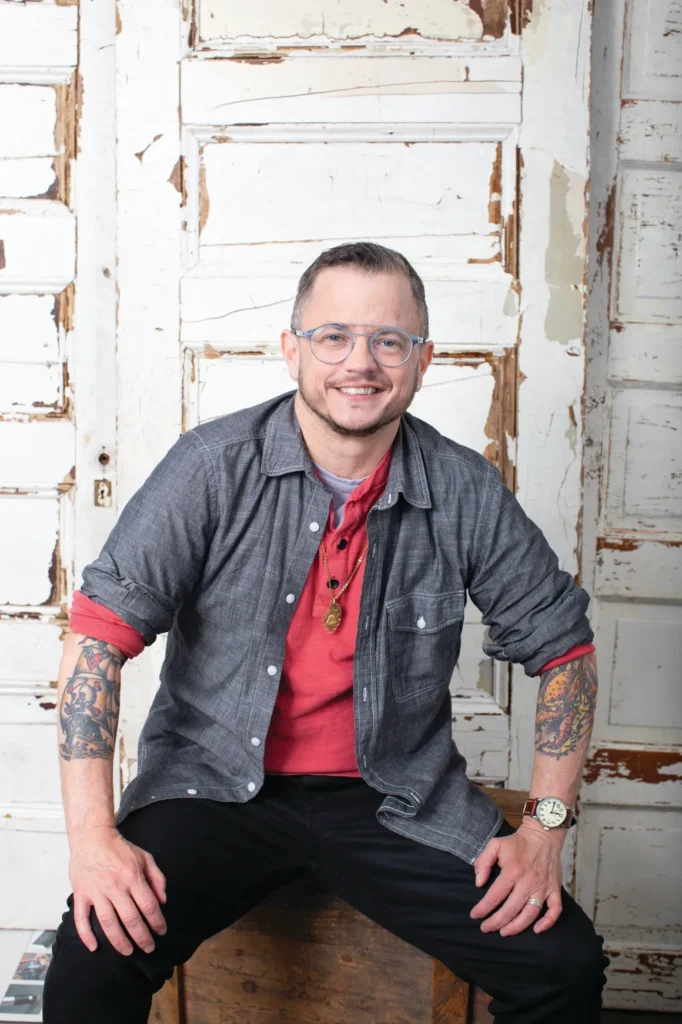P. Carl to Direct Adaptation of His Memoir for ART

The upcoming season of the American Repertory Theater will include a play adapted from P. Carl’s memoir, Becoming a Man.
Carl, a Senior Distinguished Artist in Residence for the Performing Arts Department, will co-direct the play, which chronicles his journey to affirm his gender.
P. Carl answered questions from Emerson Today about adapting his book, casting someone to play him, and whether he expects protests of the production.
Q: How did turning Becoming a Man into a play come about?

Because I have spent most of my professional life in the theatre, I knew immediately I wanted to adapt it into a play and had a sense of how I could do that. If someone reads the memoir it’s not always obvious how to dramatize it because it jumps around in time and it covers more than the biographical story of transitioning.
I had worked closely with the director [and ART Artistic Director] Diane Paulus on Claudia Rankine’s play The White Card. I was the dramaturg and was very involved in the production. Diane is one of the best dramaturgical directors I have ever worked with, [ART Director of Artistic Programs & Dramaturg] Ryan McKittrick is one of the best dramaturgs in the field. I needed people who would not shy away from giving me difficult feedback and who I trusted to bring perspectives that I can’t bring to the story because I am too close it at times.
I gave a copy of the memoir to Diane before it was published. She read it on her phone on a plane to Tokyo and emailed me and said she wanted to commission it. I adapted it very quickly. We read it around her kitchen table with cast members from the production Jagged Little Pill, and there was a consensus that we wanted to produce it. Then COVID arrived two weeks later and three years passed.
Q: You’re co-directing. What is your full role in the production?
I am the playwright and co-director. Because it’s a story that really hasn’t been told in the theatre, all of us knew it was important that trans and nonbinary people play a large role in the production. It felt essential to have a trans perspective in thinking about how actors think, feel, and move.
Diane and I have a very natural and complimentary rhythm. I have character insights and a sense of the emotional trajectory of the play that is necessary for the actors and designers. Diane asked me to co-direct so that perspective would be infused in all aspects of the production.
My life is a political statement whether I like it or not.
Q: Is someone playing you? What are you looking for when casting someone to play you?
Yes! Someone is definitely playing me. I do not act. I always joke that I am of the 1 percent of theatre people who never wanted to act. We had a workshop of the play in February and we cast this amazing trans male actor. Weirdly, we look alike, which was not a criteria, but he has a lot of performance experience and he was simply amazing in the part. We are hopefully casting him in the production. He’s on a TV series and with the writers’ strike in Hollywood, his schedule is uncertain, but he wants to be in the play as much as we [want him].
Q: Are there other characters who are real people in your life?
All of the characters are real people in my life. My spouse, Lynette, and I are the only characters keeping our actual names. Everyone else has had their name changed so as not to put them in any kind of uncomfortable place with the people in their lives, but they are all real people. And the story is faithful to the book, so nothing in terms of the narrative is fictional. Time might be collapsed in places or scenes ordered in a different way, but the story is true in the sense that it is faithful to my memory of things.

Q: Do you have an idea of what you’d like the set to look like?
We are just beginning to have that discussion. We want this to be a play that can be done anywhere with minimum budget, so we don’t plan [to use] an elaborate design — we will use projections for sure but more to come on that.
Q: The narrative of the play is very important currently with the escalation of anti-trans legislation. Is your story a political statement, and how do you feel about that notion of it becoming a political statement?
My life is a political statement whether I like it or not. At least a third of this country, if not more, think I suffer from an illness and that I should be eradicated in some way. It’s a terrifying time for trans people.
My way of entering politics is through life. The story doesn’t talk about legislation or include protests. Rather, it tells a human story about relationships, what happens when people change, when a marriage is upended by something no one could prepare for. It’s a play about living, and trans people deserve to live a life in all of its complexities. It’s a play about being imperfect, about the pain we inflict upon one another, and about hope — that a trans person can grow old, be in a marriage for 25 years, make enough money to live on.
I have trans students come to me all of the time and tell me I am the only trans person they know over 25 living a life they could imagine for themselves. These students need many more mentors and role models and reflections of themselves in the culture. The play is one narrative about one trans man’s life.
Q: Are you worried about protests of the production?
I guess I could be, but when I am making art I am making something honest and true and I think about audience in terms of things like clarity, but the emotional reality has to be mine. I have to own my perceptions and words and successes and failures. My book has been removed from library shelves. One student brought me the banned copy with the ISBN number crossed out with a big X. As if you taking away my ISBN number will make me disappear. Trans people aren’t going anywhere no matter the efforts to X us out, so I say protest if you feel compelled to deny me and others their humanity.
I will say I think there is a lot of weight on the play to hold too much. This is always true when there are so few stories in the culture about a marginalized community. One story cannot be expected to stand in for all stories, and so I know there will likely be trans people disappointed by the play, but that’s a conversation we need and can have, and we will be stronger as a community for disagreements and hard conversations. But the people who think we aren’t human — that’s a hard conversation to enter and I can’t think about those people when I’m working on the play, because I can’t guess what they will or will not do.

Q: A theme of the play is what it means to feel welcome in your own country. Do you feel welcome in your own country?
Who feels welcome in this country? I think it’s weird to have people I don’t know and never will know obsessing about me and my body — but look at abortion rights and all the men who think they can legislate women’s lives. I could write a dissertation in response to this question — I teach a class at Emerson called Ruled by Conviction: Confronting Narratives of White Masculinity that address this question in detail.
Q: ART’s artistic director Diane Paulus said that, “The play asks the question: When we change, do the people we love come with us?” Do they?
Some do and some don’t. And it can be a real surprise what side of that question people close to you land on.
Q: Do you think other Emersonians will be involved in the production?
Yes, for sure. We are already talking about that — what are the mentorship opportunities inside the production process, how can Emersonians help with what ART calls the Act 2 — a post-show conversation or event after each show.
Q: How will this production help you grow as an educator for Emerson?
I teach in Performing Arts, and that world is fraught with difficulty around big questions of power and representation, and those questions are lived in the rehearsal room and in the communities where the play will be performed. Any time I put art into the world the learning never stops. People respond in ways that I could never imagine — sometimes good, sometimes hard — but being in a constant state of learning is one of the most important things I can do as an educator.
Q: Do you envision Becoming a Man in other story forms?
Yes. I have a TV deal to make the show into a series. Once the writers’ strike is over, I will begin to write the pilot episode. And we will see what happens from there.
Q: Anything else you’d like to say about the production, yourself, et cetera?
Right now, I am working on a big rewrite of the play based on the workshop we did in February. The reading went very well and that’s great but it always exposes the work that needs to be done. I am in the thick of that now and when I’m writing I can’t really do too much else — except bird. I am an obsessive birder and it’s warbler season, so I am thinking about writing and warblers.
Categories